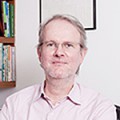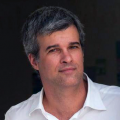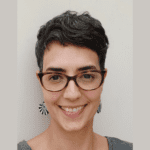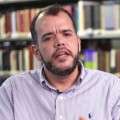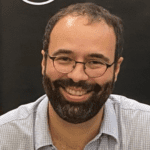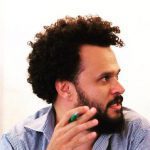About the program
The graduate program in Sociology of the IESP-UERJ is formed by the professors of the former graduate program in Sociology of IUPERJ, that migrated to the new institution (June 2010). This migration guaranteed the integrity and the continuity of the tradition consolidated during the years of national leadership in Social Sciences research and education at a graduate level.
The graduate program in Sociology of the IESP-UERJ was founded in the former IUPERJ in 1973 and it became a reference of excellence in this area. In the former IUPERJ, as well as in the current UERJ, the Sociology and Political Science programs have always had a close relationship of intellectual and institutional collaboration. These characteristics helped to create an intellectually creative alternative in the scene of graduate studies in Social Sciences in Brazil.
The initial inspiration of the graduate program in Sociology involved a requalification of the democratic issue in the public sphere, putting aside the conceptions that considered the democracy merely as a political form. After more than 50 years, the format of the graduate program in Sociology of the IESP-UERJ preserves this inspiration, and is formed, on one hand, by the institutional issue addressed from the angles of political sociology and social theory and, on the other hand, by the Brazilian social question addressed from the angle of urban sociology and social inequalities. These approaches are in constant dialogue with the legacy of the country’s Political and Social Thought, which essayistic has been progressively integrated to the program.
Coordination
Coordinator
José Eduardo Leon Szwako
Postgraduate Office
Louise Lopes Veloso (louise@iesp.uerj.br)
Tel.: (21) 2266-8300
Research lines
a) Inequalities, Social Mobility and Work
Given the persistence and high levels of economic and social inequalities in Brazil and around the world, our research on the subject seeks to understand issues as diverse as the meaning and changes in the various dimensions of inequalities, the social consequences of crises and economic development, as well as initiatives to solve more serious social problems such as malnutrition and unemployment. Currently, the debate on inequality has revolved around what its main dimensions are, its levels and structure, the main determinants and ways of combating it. The sociologies of labour and education, as well as all their ramifications, play a central role in this line of research. It is important to stress that the line’s objectives are not only to investigate the various and always intersecting forms of inequality, cleaved by class, gender and race (although not only by these), social mobility throughout life cycles and labour relations in Brazil; but also to give theoretical and critical intelligibility to the more general foundations of these phenomena in the national and international contexts.
Faculty acting in this research line:
b) Political Sociology
This line focuses on the relationship between state and society, as well as the foundations and social bases of the political practice of agents and social groups. With a multidisciplinary perspective, but strongly anchored in sociology, this line seeks to discuss classic themes such as the socio-political formation of states; the relationship between social groups, social networks and politics; the social construction of public policies; the role of public opinion and social movements in institutional politics. In addition, we focus on the various political consequences of our social inequalities for democracy, in Brazil and in other international contexts, in a multidimensional way, taking into account class, racial and gender injustices and their vocalisation in legal and informal institutional channels inside and outside the state.
Faculty acting in this research line:
- Breno Bringel
- Fernando Fontainha
- João Feres Júnior
- José Maurício Domingues
- José Szwako
- Luiz Augusto Campos
c) Urban Sociology
This line of research includes initiatives centred on the study of urban life and the production of cities, in their multiple scales and dimensions. Cities figure here not only as a backdrop to social life, but as an object of analysis that allows us to investigate the structural and everyday dimensions of social inequalities. Our empirical research contributes to a better understanding of pressing social problems, with a strong emphasis on the issues of housing, socio-spatial inequalities, violence and public safety. These classic issues are addressed through new approaches and objects of study, ranging from ethnographic readings of urbanism, infrastructure and urban materialities, to comparative research on urban policies, public safety and major investment projects, as well as incorporating epistemological debates around the urbanisms of cities in the Global South.
Faculty acting in this research line:
d) Social Theory
This line brings together all our initiatives in the context of national and international discussions on the theoretical foundations of social life, both in its more general dynamics and in the specificities of our modernisation process. We deal here with themes that open up to other disciplines, such as philosophy, anthropology, linguistics, psychology, psychoanalysis, political science and economics. In cross-cutting dialogue with the other lines of our postgraduate programme, this line continues to invest in other ways of thinking about social life based on the most burning national and global debates about social dynamics.
Faculty acting in this research line:
Masters
The master’s degree has a maximum period of two years to be completed. During this period, the student undergoes intense theoretical and methodological training in the area of his/her specialization, filling a total of 27 credits. During the fourth semester, they prepare a dossier that includes, in addition to the academic transcript, a dissertation to be defended before a panel of three professors (one external). Those approved receive a master’s degree and can compete for a spot in the doctorate course.
Doctorate
The doctorate is intended for the training of researchers and focuses on original research and the production of theses. It has a mixed or semi-tutorial character, with greater flexibility for the student and greater responsibility for the teacher-advisor, but at the same time with institutional controls over the flow of students. Credits are earned by attending courses, and participation in three research seminars is also required, one for a project and the other two for a thesis. At the end of the first year, the student must defend the thesis project, which also functions as a qualifying exam for pursuing a doctorate. The thesis defense must be done, at the latest, by the end of the eighth academic semester.
Faculty
Adalberto Moreira Cardoso
Breno Marques Bringel
Carlos Antonio Costa Ribeiro
Eugenia Motta
Fernando de Castro Fontainha
Guilherme Leite Gonçalves
João Feres Júnior
José Eduardo Leon Szwako
José Mauricio Castro Domingues
Luiz Augusto Campos
Marcella Araujo
Mariana Cavalcanti
Palloma Valle Menezes
Pedro H. G. Ferreira de Souza
Rogério Jerônimo Barbosa
Selection
Information about the selection process is available in our Selection page.

